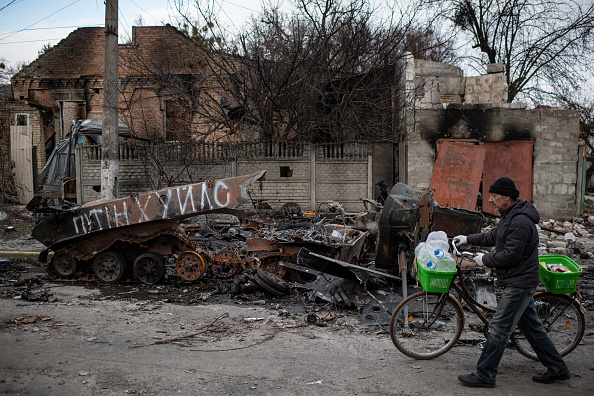London’s open economy was exploited by corrupt money, now we must make it our strength

For centuries, London has been a haven for people fleeing persecution, war, famine, and other catastrophes. From the French Huguenots of the 18th Century to Jewish refugees fleeing the Nazis, we have a strong and proud tradition in this city of welcoming, integrating, and supporting refugees. It is in London’s DNA and an integral part of our success as a rich, diverse, and multi-ethnic global city. We have not always been perfect in our approach, but Londoners’ instincts have always been to welcome, rather than shun.
As the horrors and atrocities wrought by Russia’s illegal invasion of Ukraine continue to displace millions of Ukrainian civilians, business leaders must respond according to our collective duty, moral responsibility, and capability to make a difference. Firms must act in unison to play our part in the weeks and months ahead, until this crisis is resolved.
The first step is the one started by the government: we must continue to economically isolate the Kremlin and its enablers. This means implementing the sanctions aimed at Russia’s kleptocrats and the Kremlin-linked businesses fuelling the war. Commerce and conflict cannot be separated. There can be no prosperity without security, and Putin’s inhumane actions have shattered European security.
All businesses, and the City of London in particular, must swiftly cut unethical ties with Russian businesses and investors that have backed the Kremlin’s power structures and enabled corruption. Professional service firms must halt all work with oligarchs whose money is steeped in the Kremlin’s war. We must no longer be wilfully naïve to the sources of wealth or the political associations of companies and individuals investing in our city. Never again can London’s openness, professional services, and capital markets be exploited so brazenly.
Second, we must be proactive in supporting Ukrainian refugees. The government’s slow response in creating a route for Ukrainian refugees coming to the UK, even to join family, has been shameful. I wholeheartedly welcome the Home for Ukrainians scheme – but the devil is in the detail. Its promise, in principle, of “healthcare, benefits, employment support, education, and other support” must be robust, in practice. Businesses should be as welcoming as possible to new refugees and look to place them in roles where they can be integrated quickly and contribute to the economy too. A number of large UK businesses including Marks & Spencer, ASOS, and Lush have already stepped up as part of an initiative that will offer jobs to newly arrived refugees.
Third, we must mobilise the collective power of small and medium sized enterprises (SMEs). So far efforts to place Ukrainian refugees into employment have come from large companies, but SMEs have a vital role to play in this process. London is home to over one million SMEs. If we can channel this power, our capital can help make huge strides in integrating new arrivals from Ukraine; helping to expand the city’s economy, increase employment, and generate greater prosperity for London and the rest of the country. This must be done in concert with thoughtful support from the government.
The London Chamber of Commerce and Industry has – and continues to – provide guidance to our members on how to navigate the ramifications of this crisis for themselves, and support Ukrainian refugees where possible.
Arguably we should have done this before; for Hong Kong, for Afghanistan, for Syria. We shall correct this now, and it is my hope that the Ukraine crisis will lead to a change in our approach for refugees from all countries and conflicts. For the benefit of Ukrainians, Londoners, and Britons, let us recall London’s history as a haven for all and a place where anyone can thrive.
